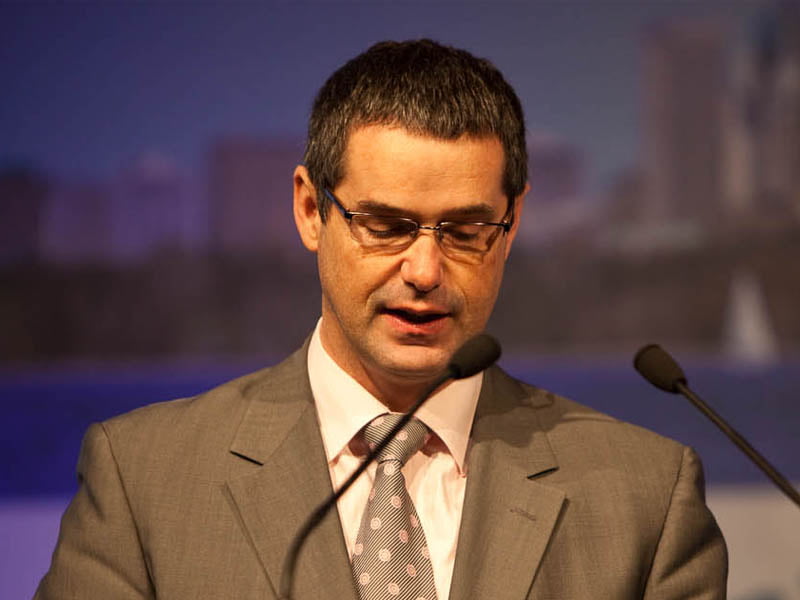Public sector bureaucrats are stymieing innovation efforts at both federal and state government levels with “gatekeepers from hell” impeding the progress of local startups.
According to Stephen Conroy, former minister for broadband communications and the digital economy, convincing Cabinet of the need for digitally driven change had been a challenge, but trying “to drive the change through the bureaucracy was a very significant challenge.”

He warned that governments of all stripes needed to beware of “the various tricks the silos play to protect their patches.”
“It is very, very hard to drive transformation across government.”
That was particularly the case in procurement, said Mr Conroy, who was on a panel at the Australian Computer Society’s Reimagination conference in Sydney this week.
He said that procurement was a difficult area to reform due to bureaucrats’ risk aversion.
The Digital Transformation Agency (DTA) is currently attempting to introduce elements of procurement reform in Federal agencies through the Digital Marketplace, while the ICT Procurement Taskforce is leading a broader attempt to reform how the government buys $5.6 billion worth of ICT products and services each year.
Mr Conroy’s experience however also resonates at the state level. Joining Mr Conroy on the panel, NSW minister for innovation and better regulation, Victor Dominello said “one of the greatest challenges and frustrations inside a Government is silos.
“Bureaucracies protect their own patch,” and were unwilling to take risks in case their heads ended up on the block, he said.
He said that the experience of many innovative companies in the past was that when they approached Government with a fresh service or product they had first to get past “the gatekeeper from hell” in the form of a bureaucrat unwilling to rock the status quo, who was often able to tie up the business for months at a time in red tape.
“This is complete insanity in the system when the gatekeeper is the one that may be disrupted,” said Mr Dominello, adding that was the impetus for the creation of a SharkTank and Innovation Concierge as part of NSW’ newly released innovation strategy.
It’s an attempt to block the blockers.
According to Mr Dominello the cultural challenge within bureaucratic silos is that “Your mental state is caged like a chicken – we need more free range thinkers.”
Free-range thinkers, however, haven’t fared so well of late – particularly those prepared to sacrifice sacred cows.
Rachel Dixon head of the DTA’s digital identity initiative has seen her plans reined in while the news broke this week that Paul Shetler was leaving the agency. Mr Shetler, formerly CEO of the Digital Transformation Office, was demoted to chief digital officer when it was rebadged as the DTA.
Even before the Shetler news, there was a veritable revolving door of chief operating officers ahead of the formation of the DTA which is led by Nerida O’Loughlin.
The constant flux is unnerving some industry players.
Laurie Patton, CEO of Internet Australia said that the organisation had forged a positive working relationship with Mr Shetler and hoped it could develop similar links with Ms O’Loughlin.
But he added that “Internet Australia will be keeping a close eye on the DTA.
“While it was initially formed to improve online delivery of government services, there is a danger it could simply become a tool for cost cutting and the reduction of services.
“The UK experience with a similar organisation suggests that we could inadvertently create a ‘digital divide’ where people without broadband access and/or digital skills are marginalised.”
Access to better data could however empower ordinary citizens according to Mr Dominello.
He offered the example of an initiative from the NSW Data Analytics Service which had secured a series of building industry related data sets and been able to determine with 84 per cent reliability when a builder was about to go bust.
That allowed remedial action to be taken in advance of a collapse, delivering a better outcome for all, he said.
However he acknowledged that setting up the data analytics centre was “one of the most difficult things I’ve done as a Minister” as it had threatened “a real rocket up to the silos.
“Information is power – if they hold the information they hold the power.”
By making data more widely available the silos were punctured, and the benefits shared.
Mr Dominello also noted that it’s not just digital transformation initiatives that would benefit from more free-range thinkers. Government itself could do with some fresh talent
A lawyer by training, he noted; “We would have a far healthier parliament if we had more engineers.”
Lawyers he said were inevitably adversarial while; “If we had a group of engineers they would be talking about solutions.”
Do you know more? Contact James Riley via Email.

